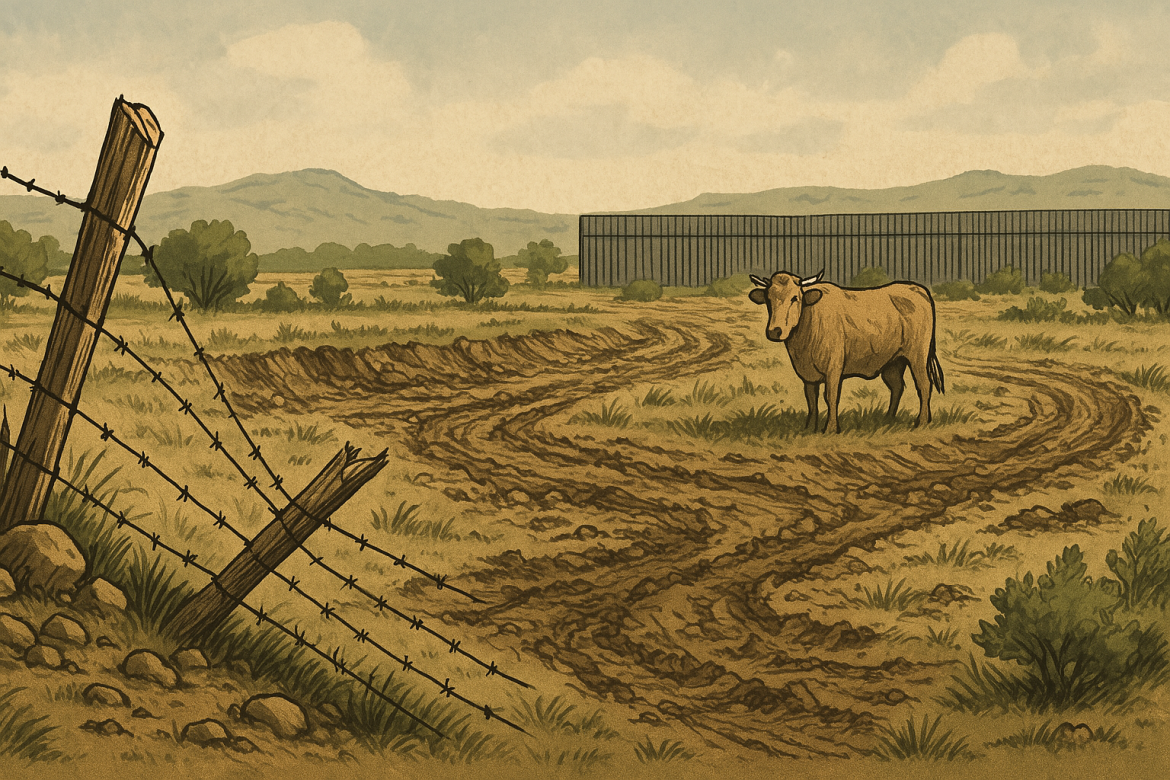In Austin, Texas, state legislators are deliberating on measures to support border ranchers who have endured significant property and livestock losses due to increased smuggling activities over the past four years. Representative Ryan Guillen of South Texas has introduced a bill aimed at expanding eligibility for state grants to assist these landowners in rebuilding their fences, repairing pastures, and compensating for livestock losses. The proposed legislation seeks to broaden the scope of existing aid programs, which currently cover only property damage, to include livestock losses and other agricultural impacts.
The financial burden of these damages has been substantial for many ranchers. Smugglers, often evading law enforcement, have caused extensive destruction to fences and farmland, leading to considerable repair costs. Recognizing the severity of the situation, the Texas legislature previously passed Senate Bill 1133 during the 88th Legislative Session, establishing the Landowner Compensation Program. This initiative, signed into law by Governor Greg Abbott, allocated $34 million to reimburse property owners for damages resulting from border-related crimes, including human trafficking and smuggling. Under this program, agricultural landowners can receive up to $75,000 in compensation for qualifying damages.
Despite these state-level efforts, Texas officials are seeking federal assistance to offset the substantial expenses incurred through border security initiatives. Governor Abbott has formally requested Congress to reimburse Texas for the $11.1 billion spent on Operation Lone Star, a comprehensive border security operation launched in 2021. This initiative involved deploying state troopers, National Guard personnel, and constructing border barriers to curb illegal immigration and related criminal activities. Abbott argues that border security is a federal responsibility and that Texas taxpayers should not bear the financial burden alone. The reimbursement, if approved, could alleviate the state’s financial strain and potentially provide additional resources for affected landowners.
The federal response to Texas’s reimbursement request remains uncertain. While some members of Congress have expressed support for the state’s efforts, others question the allocation of such a significant sum. The debate underscores broader discussions about the division of responsibilities between state and federal governments in managing border security and addressing the impacts on local communities.
As lawmakers continue to deliberate, border ranchers remain hopeful for comprehensive support to mitigate their losses and restore their livelihoods. The outcome of these legislative efforts will have lasting implications for the resilience of Texas’s border agricultural communities and the broader discourse on border security funding.
Sources:
- https://kfoxtv.com/news/local/el-paso-texas-gov-greg-abbott-signs-bill-compensating-farmers-for-property-damage-due-to-border-related-crime-migrant-smuggling-bailouts-human-trafficking-senate-bill-1133-senator-cesar-j-blanco-office-of-the-attorney-general
- https://www.cbsnews.com/texas/news/texas-governor-greg-abbott-federal-reimbursement-operation-lone-star/
- https://www.lmtonline.com/local/article/laredo-border-greg-abbott-federal-funding-hb-1544-20246823.php
- https://www.texastribune.org/2025/02/11/texas-reimbursement-operation-lone-star-border-abbott/



